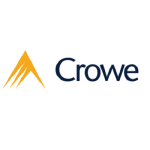The Income Tax Amendment Bill 2020 (the bill) was introduced to Members of Parliament for first reading on October 5 2020. The bill proposes legislative amendments to effect changes to the Income Tax Act (ITA).
While many of the proposed legislative amendments are to effect the tax changes announced in the 2020 budget, such as the corporate income tax rebate and the enhanced loss carry-back relief scheme for the Year of Assessment (YA) 2020, there are also non-budget amendments proposed in the bill.
This article looks at a few of those proposed non-budget amendments to the ITA.
Surcharge for tax avoidance arrangements
Under section 33 of the ITA, the Comptroller of Income Tax (the Comptroller) can disregard or vary an arrangement and make relevant tax adjustments as he considers appropriate to counteract any tax advantage obtained or obtainable by a person from or under that arrangement if the Comptroller is satisfied that the purpose or effect of that arrangement is directly or indirectly to:
Alter the incidence of any tax which is payable by or which would otherwise have been payable by the person;
Relieve the person from any liability to pay tax or to make a return under the ITA; or
Reduce or avoid any liability imposed or which would otherwise have been imposed on the person by the ITA.
The general anti-avoidance rules under section 33 of the ITA do not apply to an arrangement that was carried out for bona fide commercial reasons and had not as one of its main purposes the avoidance or reduction of tax.
The effect of any adjustments under section 33 of the ITA is to restore the taxpayers’ tax position as though the tax avoidance arrangement had not been entered into. However, the ITA does not provide for the imposition of a surcharge with respect to the tax adjustments made by the Comptroller under section 33 of the ITA.
Under the proposed amendment to the ITA, the Comptroller can impose a 50% surcharge on any income tax or additional income tax resulting from the adjustments made under section 33 to counteract tax avoidance arrangements for the year of assessment 2023 and subsequent years of assessment. It should be noted that the surcharge is payable within one month after the date a written notice of the surcharge is served, regardless of whether the taxpayer is appealing or objecting to the adjustment.
It has also been proposed to introduce a similar surcharge of 50% in the Stamp Duties Act (SDA) and the Goods and Services Tax Act (GSTA) to be imposed on any additional stamp duties or GST, as the case may be, resulting from adjustments made to counteract tax avoidance. The SDA and the GSTA contain anti-avoidance provisions that are similar to section 33 of the ITA.
The proposed surcharge under the SDA will apply to any additional stamp duties resulting from adjustments made to instruments or deemed instruments executed or deemed executed on or after the date the Amendment Act is published in the Official Gazette. The proposed surcharge under the GSTA will apply to any additional tax resulting from adjustments made to GST accounting periods starting on or after January 1 2021.
Car-related expenses and capital allowances on cars used in the business of providing chauffeur services
Expenses incurred directly, or in the form of reimbursement, on using private hire cars or private cars are not tax-deductible, even if the private cars were used for business purposes. Capital allowances are also not allowed in respect of private cars.
However, there are a few exceptions. For example, private hire car expenses and hiring charges are tax-deductible to a person who is carrying on the business of hiring out cars and the private hire car is used by the person principally for hiring. Similarly, capital allowances can be claimed on a private hire car acquired by a person who carries on the business of hiring out cars and which is used by the person principally for hiring.
The bill proposes that the deduction of car-related expenses and capital allowances on cars used in the business of providing chauffeur services be allowed to any person from any business of providing chauffeur services using motor cars, provided certain conditions are met. This is in recognition of the fact that chauffeur services may no longer be provided as incidental to the main business of renting out cars. The proposed change is to be effective from YA 2021.
Non-owners of immovable properties to be excluded from the provisions of section 10E
Section 10E of the ITA prescribes how the income of a company or trustee of a property trust derived from any business of the making of investments should be ascertained. “Business of making investments” refers to the holding of investments to derive investment income as a trade but not to trade in those investments.
Under section 10E, the deduction of any allowable expenses and capital allowances are restricted to the income derived from investments which produce income. Any expenses and capital allowances that cannot be set off against such investment income in that year will be disregarded.
The proposed amendment under the bill clarifies that section 10E does not apply to taxpayers who:
Are not legal owners of the immovable properties; and
Are not in a position to receive any consideration from the disposal of the immovable properties or from the novation of leases relating to these immovable properties.
New exception to the Official Secrecy provisions
Under section 6 of the ITA, every person having any official duty or being employed in the administration of the ITA must regard and deal with all documents, information, returns, assessment lists and copies of such lists relating to the income or items of the income of any person, as secret and confidential. However, there are certain exceptions provided for in section 6.
For the purposes of Singapore’s participation in multilateral tax compliance programmes, the bill proposes a new exception to the section 6 official secrecy provisions to facilitate the disclosure of information concerning a taxpayer to foreign tax authorities. Such a disclosure can be made if the taxpayer provides express written consent and the disclosure is for a purpose, and satisfies the conditions, that will be specified in rules prescribed by the Minister for Finance.
Sivakumar Saravan
T: +65 6856 9993
Liew Kin Meng
T: +65 6856 9933













